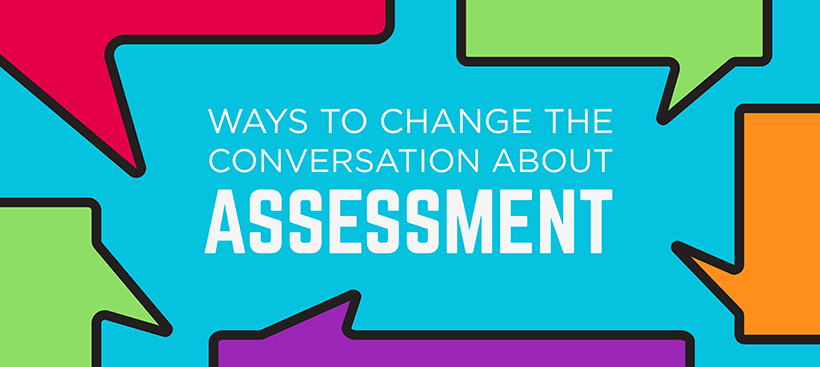From the NCTE Standing Committee on Literacy Assessment
This post was written by NCTE members Kathryn Mitchell Pierce and Chris Hass, members of the NCTE Standing Committee on Literacy Assessment.
So many of the assessment practices in our schools involve adults making decisions about student learning—their current performance, their achievement trajectories, and the goals set for learners.
During this unprecedented disruption in schooling, we have an opportunity to shift the conversation in ways that help us consider—and balance—multiple perspectives on assessment. How might we use this situation as an opportunity to invite students and families to help us shape new perspectives and practices around assessment?
In Part I, we explore ways to engage students in self-evaluation.
In Part II, we will explore ways to engage families in collaborative assessment of student learning.
Shifting HOME to Student Self-Evaluation
Taking stock of our own learning growth and goals requires some time for reflection. How might we invite students to use their “stuck at home” time to reflect, take stock of their learning—and set goals for future learning? What if we extended invitations to students such as:
- Make a list of three things you’ve become really good at doing. When you look at this list, what ideas do you have about something you’d like to learn or improve? Listen in as Eli’sha Rogers and teacher Chris Hass engage in a virtual conference about Eli’sha’s reading.
- Dig around in boxes and folders to find some examples of your own writing—from schoolwork or from your own daily living (including social media posts and text messages). What do you notice? What evidence do you find that you’ve grown as a writer?
- Take a close look at something you’ve created lately—for school or for your own daily living. What do you find to celebrate? What do you find that suggests new things to learn or try?
Here, elementary teacher Chris Hass shares a list of prompts that he uses to initiate student reflections and conferences in his classroom. These prompts are useful for face-to-face conferences as well as virtual ones. Listen in as Raleigh Greene responds to one of these prompts as part of her self-reflection on writing.
What are we listening for during these conferences?
- Insights into the ways this student values reading/writing. This includes information about how the student views reading as a meaning-making process or writing as a way to clarify and share thinking with others.
- Evidence that the student is able to recognize, name, and celebrate areas of growth. This information helps us to know how we might provide more nuanced perspectives or specific language to describe that growth.
- Evidence that the student is able to set reasonable goals. When students see reading and writing as processes—as life tools that they can learn to use more effectively—they are prepared to look for next steps in their own learning.
For more examples of classroom teachers assessing the ways students value the reading/writing process, see Reading Assessment: Artful Teachers, Successful Students.
As teachers, we can invite students to share their observations, celebrations of growth, and ideas about “next steps.” These invitations communicate our respect for student perspectives and help to strengthen the learning partnerships we’ve been building all year. Viewed through a collaborative and inquiry-focused lens, assessment becomes an ongoing process of knowing students, and helping them to feel seen as individuals. [See School Talk issue on Assessment.]
Reflection on learning is a critical part of taking ownership—for elementary, secondary, and college learners alike. When we ask students to share their descriptions of student learning, without privileging our own, we allow ourselves to be open to the ways our school literacy learning experiences can be more responsive to student insights. Changing the conversation has the potential to change the ways we engage with and support students when classroom learning resumes.
Stay tuned for Part II, with a focus on engaging with families. In the meantime, please complete this survey to share your own stories about shifting the conversation about assessment during these unprecedented times.


Kathryn Mitchell Pierce works with graduate and undergraduate teachers at Saint Louis University, Missouri. Chris Hass is a second and third grade teacher at the Center for Inquiry in Columbia, South Carolina.

